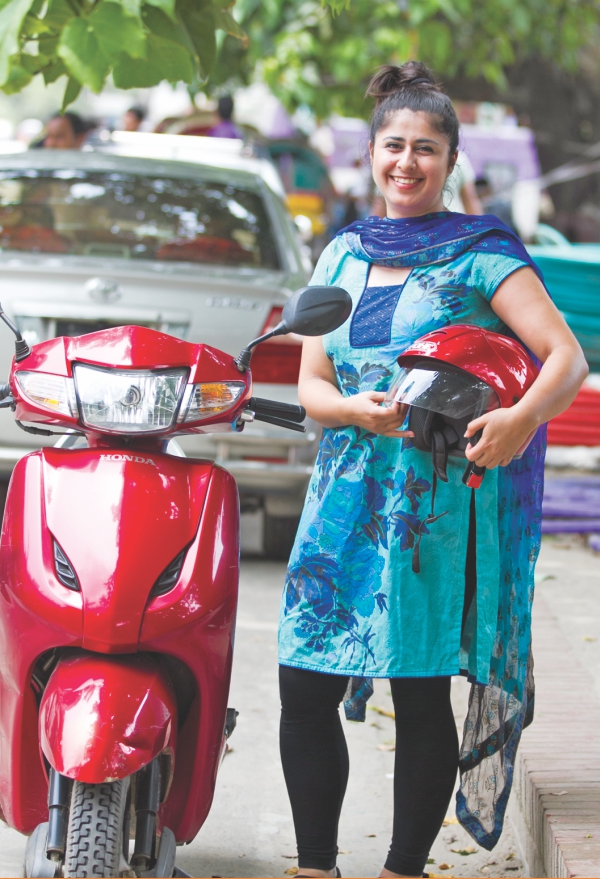Japan automobile giant Honda yesterday inaugurated its motorcycles manufacturing plant in Bangladesh, in what can be viewed as a watershed moment for the country’s industrial capabilities.
The plant, which was set up for Tk 230 crore on 25 acres of land in the Abdul Monem Economic Zone (AMEZ) in Munshiganj, will help save foreign currency and make motor bikes more affordable.
“We will hit the market with the ‘Made-in-Bangladesh’ Honda bike,” said Shah Muhammad Ashequr Rahman, head of finance and commercial of Bangladesh Honda Private Limited (BHL), a joint venture between Honda and state-owned Bangladesh Steel Engineering Corporation (BSEC).
The plant will have an initial annual production capacity of 100,000 units a year. By 2021, the production capacity will expand to 200,000 units a year, according to BHL, which has been marketing Honda brand bikes in Bangladesh for the last several decades.
It plant will make seven models of Honda motor cycles: Dream Neo 110, LIVO 110, CB Shine125, CB Trigger 150, CB Hornet 160R, and CBR150R.
Rahman declined to specify the prices of locally made Honda two-wheelers, but said they would not be more than those of the existing bikes.
Industries Minister Amir Hossain Amu, who inaugurated the plant, said he expects Bangladesh’s customers would get world-class motor cycles at a reasonable price.
So far, Tk 1,500 crore has been invested for the development of motorcycle industry in Bangladesh.
“Hundreds of jobs were created thanks to the investment,” he said.
Honda’s move to start local manufacturing comes at a time when the motor cycle market is fast expanding, spurred by price cuts brought about by a slash in supplementary duty on the import of the two-wheeler’s components and a surge in ride-sharing services in Dhaka and Chittagong.
The National Board of Revenue slashed the SD by 25 percentage points to 20 percent in fiscal 2016-17 to encourage local assembly and subsequent manufacturing.
The government also framed the National Motorcycle Industry Development Policy 2018 with a view to diversifying the country’s manufacturing and export and creating jobs.
Today, on average 1,000 units of two-wheelers are sold every day in Bangladesh as the demand is surging for the mobility it provides in the congestion-ridden urban life. The number was around 550 five years earlier, said industry operators.
Yuichiro Ishii, managing director and chief executive officer of BHL, expects the motor cycle industry in Bangladesh to expand and contribute to the national economy by generating more jobs and developing a skilled workforce.
The plant will also facilitate technology transfer, encourage the growth of a parts supplying industry and attract more direct foreign investment, he added.
Saber Hossain Chowdhury and Mrinal Kanti Das, both lawmakers; Mosharraf Hossain Bhuiyan, chairman of the NBR; Paban Chowdhury, executive chairman of the Bangladesh Economic Zones Authority; Muhammad Abdullah, youth and sports secretary; Hiroyasu Izumi, ambassador of Japan to Bangladesh; Noriaki Abe, operating officer for motor cycle operations of Honda Motor Co Ltd; and Masayuki Igarashi, president and CEO of Asian Honda Motor Co Ltd, were present.
Source: https://www.thedailystar.net/business/economy/japan-honda-opens-motorcycle-manufacturing-plant-in-bangladesh-1659286


